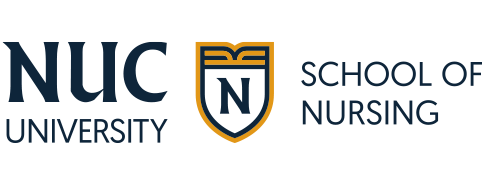The Associate of Science in Nursing (ASN) program is a skills-based degree program designed to provide aspiring nurses with the basic clinical skills and foundational understanding that they need to provide patients with bedside care. Preferred by students who want to begin working as soon as possible, this program is ideal for those interested in securing an entry-level position as a registered nurse.
An In-Depth Look at the ASN Program
As you consider which nursing program is best for your personal circumstances and your professional goals, you should review the Associate of Science in Nursing program curriculum. By developing an understanding of the required coursework and the clinical rotation requirements, you can make the right decision for your career.
The Importance of an Associate of Science in Nursing
The Associate of Science in Nursing program is a foundational degree program that provides you with the knowledge and skills needed to earn your license as a registered nurse and pursue entry-level nursing positions. It provides you with the skills you need to enter the workforce, while opening up the possibility for growth and development in the future.
Overview of ASN Program Structure
The ASN program typically includes relevant coursework, much of which involves advanced math and science concepts, as well as clinical rotation requirements. Some programs, such as the Associate of Science in Nursing program offered at Florida Technical College, also offer training in simulated environments. These kinds of programs allow nurses to develop advanced nursing skills.
Core Courses in ASN Curriculum
The core courses may vary based on the associate degree program that you choose, but at Florida Technical College, these are the courses required as part of the Associate of Science in Nursing online program:
Anatomy and Physiology: Building the Foundation
Anatomy and Physiology are core courses required in most nursing degree programs. Throughout this course, students will learn about the body systems and how they work together. This provides nurses with the foundation they need to care for their patients throughout the course of their career.
Pharmacology: Medications and Patient Care
Pharmacology is a course that provides students with an in-depth look at how medication affects the human body. Given the fact that nurses administer medication on a regular basis, it’s critical to develop expertise in this subject.
Microbiology: Understanding Infections
During the microbiology course, students in the ASN program will study how microorganisms impact the human body. By studying microbiology, aspiring nurses will be able to better understand the cause of infections, which will allow them to provide their patients with more effective care.
Nutrition: The Role of Diet in Health Care
Nutrition is another vital course within the ASN curriculum, as it gives students the opportunity to study the role that nutrition plays in the health and well-being of an individual. Throughout this course, they will learn about the best dietary choices for patients and how nutrition can impact patient outcomes.
Clinical Skills for ASN Students
In addition to completing the core course requirements, ASN students also will need practical training to develop the skills needed to care for patients at their bedsides. These are the courses that focus on skill development:
Fundamentals of Nursing Practice
Fundamentals of Nursing practice is a course within the ASN curriculum that covers the key practical skills required for bedside care. Some of the most important nursing skills include patient assessment, taking vital signs, administering medication, and giving injections.
Pharmacology – Administering Medications and Treatments
In the Administering Medications and Treatments course, nursing students gain a comprehensive understanding of pharmacology and its application in nursing. The course focuses on safely and effectively administering medications, including familiarizing students with the tools and technology required for proper medication delivery. Students explore drug classifications, proper dosage calculations, and the physiological effects of medications while also addressing critical aspects of medication administration, such as patient safety and ethical considerations.
Emergency Care Procedures
Emergency Care Procedures is a course that focuses primarily on what to do in an emergency situation, ultimately teaching nursing students how to triage patients and provide life-saving care.
Nursing Care in Mental Health and Psychiatry
Explore the intricacies of mental health nursing with a focus on therapeutic approaches and psychiatric care. This course covers the assessment and management of mental health conditions, offering strategies for crisis intervention and therapeutic communication. Students will learn to support patients with mental health disorders in both hospital and community settings.
Nursing Interventions with the Adult and Elder
Enhance your skills in managing complex health conditions for adult and elderly patients through this focused course. Students will study comprehensive care planning, patient assessment techniques, and intervention strategies aimed at maintaining quality of life and preventing complications in older adults.
Nursing Interventions with Mother and Newborn
This course equips students with the knowledge and skills necessary to support mothers and newborns throughout the perinatal period. Key topics include labor and delivery processes, newborn assessments, and breastfeeding techniques. Emphasis is placed on family-centered care and ensuring optimal health outcomes for both mother and baby.
Nursing Interventions with Child and Adolescent
Discover the specialized approaches to pediatric nursing in this course, which covers care strategies for children from infancy through adolescence. Students will focus on growth and development assessments, management of common childhood illnesses, and providing family education. The course also highlights the importance of promoting healthy behaviors and addressing the unique needs of younger patients.
The Role of Simulation in Nursing Education
In recent years, simulated environments have played a pivotal role in training nurses to work directly with patients. Advanced technology, such as virtual reality and augmented reality technology, allows nurses to develop their nursing skills in a lifelike environment before they ever begin to work directly with patients.
Benefits of Simulation-Based Training
There are many benefits associated with simulation-based training in nursing, such as:
- Patient safety, allowing nurses to hone their skills before they begin working directly with patients.
- Offering aspiring nurses a safe environment where they can build their confidence and perfect their clinical skills.
- Allowing nurses to receive real-time feedback.
- Allowing nurses to continue repeating the task until they feel comfortable and confident in their newfound clinical skills.
Types of Nursing Simulations
There are various types of nursing simulations that can be used as part of the Associate of Science in Nursing program, such as high-fidelity and low-fidelity mannequins, partial-task simulators, and virtual reality simulators. In some cases, nursing programs use role playing as a form of simulation.
Integrating Simulation With Clinical Practice
Simulation and clinical practice are typically used separately in nursing education. Students first practice critical skills in a controlled, simulated environment, building confidence and competence. They then apply those skills in real-world clinical settings during their rotations, which allows for hands-on experience with actual patients. This approach ensures students are well-prepared for clinical practice.
Transitioning From Student to Nurse
Once you have completed the required courses as well as your clinical rotations and simulation training, you will be ready to graduate with your ASN degree. As you transition from student to nurse, you will want to focus on:
Preparing for the NCLEX-RN Examination
The NCLEX-RN Examination is the licensing exam that ASN graduates have to pass to become licensed as a registered nurse. With intense passing standards, this computer-adaptive exam relies on advanced technology to ensure that every student who passes the exam has the minimum skills and knowledge needed to provide patients with safe and effective care.
Gaining Experience Through Clinical Rotations
Clinical rotations allow you to gain critical experience in nursing, while also giving you the opportunity to explore different specialties within the nursing profession. Most nursing students have the opportunity to rotate through different clinical environments, such as the emergency room, the labor and delivery unit, the intensive care unit, and more.
The Importance of Mentorship and Networking
As you begin your nursing career, you should actively work to network with other nurses in your area. Networking may lead to a mentorship opportunity, and having an established and experienced nurse to rely on as you launch your career can give you the confidence you need to navigate through some of those initial challenges. In fact, some programs have mentorships built into their curriculum. Furthermore,mentorship programs have been shown to help reduce burnout, as nurses feel that they have someone to rely on during the most stressful moments.
Legal and Ethical Considerations in Nursing
The healthcare industry is heavily regulated, requiring nurses to be familiar with the top legal considerations in the field. In addition, it’s important to be aware of the ethical guidelines that exist to provide all patients with the care and access that they require.
Patient Rights and Privacy
The Health Insurance Portability and Accountability Act is a law that was signed in 1996. Commonly referred to as HIPAA, this law requires nurses to adhere to policies and best practices that have been established to protect patient privacy. The HIPAA Journal explains that patients have an inherent right to privacy, and nurses must protect their patients’ private medical information at all times.
Ethical Decision-Making in Nursing Practice
Ethical dilemmas are common in nursing, particularly as nurses work to advocate for their patients while adhering to the treatment plan outlined by the attending physician. The four main ethical principles in nursing include prioritizing patient autonomy, protecting the patient’s best interest at all costs, ensuring that all patients have fair and equal access to care, and avoiding unnecessary harm.
Navigating Legal Issues in Healthcare
Nurses must become familiar with the laws that govern healthcare practices in the United States. Some of the legal issues in nursing that you may have to navigate include:
- Properly documenting patient information and protecting patient privacy.
- Understanding the role of the informed consent process.
- Providing patients with safe and effective end-of-life care.
- Navigating the complexities that arise when balancing confidentiality with the duty-to-warn.
Advancements in Nursing Education
For many aspiring nurses, the Associate of Science in Nursing online program is the first educational step in their career. Advancements in nursing education allow nurses to become familiar with the latest technology, adapt to the latest best practices in the field, and understand the trends shaping nursing in the modern healthcare landscape.
Incorporating Technology Into Nursing Education
Technology plays a vital role in nursing education, particularly considering the fact that today’s nurses are required to utilize the latest and most advanced healthcare technology while caring for their patients. By weaving technology into the curriculum, nursing educators can improve the overall educational experience while equipping nurses with the technical skills that they need to advance their careers.
The Impact of Online Learning on Nursing Studies
Online learning has revolutionized nursing studies. Students can pursue their nursing degree program online, and in many cases, they balance their coursework with professional responsibilities. As such, most nursing students are simultaneously learning the practical skills they need to grow and advance their careers as a nurse.
Continuing Education and Professional Development
Even once an ASN graduate becomes licensed as a registered nurse, they will need to prioritize continuing education and professional development to maintain their licensure. Continuing education and professional development in nursing ensures that nurses are aware of the best practices in nursing and the trends defining the healthcare landscape.
The Future of Nursing: Trends and Predictions
The nursing profession is evolving swiftly, particularly in the digital era. These are the trends and predictions that will continue to shape the field for the years to come.
The Growing Demand for Nurses in Healthcare
There is significant turnover in the field of nursing, largely attributed to the fact that many nurses in the workforce are planning to retire in the coming years. The United States Bureau of Labor Statistics (BLS) showcases a demand for registered nurses is expected to climb by 6 percent between 2022 and 2032.
Innovations in Nursing Care and Practice
The most recent innovations in nursing care and practice have been shaped by technology. Technology reshaping nursing care and practice includes artificial intelligence, robotics assistance, electronic medication management systems, and portable diagnostic devices.
The Role of Nurses in Shaping Health Policy
Nurses are more than just caregivers for their patients – they are advocates. Nurses are playing an increasingly large role in advocating for patient rights and shaping health policy.
Challenges Faced by Nursing Students
Regardless of the flexibility of an online nursing degree program, nursing students do face some challenges as they work to complete their degree and launch their career.
Balancing School, Work, and Personal Life
Nursing students sometimes find it difficult to balance their rigorous coursework with their professional obligations and personal life. Prioritizing self-care is essential during this challenging stage of life.
Overcoming Academic and Clinical Hurdles
Sometimes, nursing students face roadblocks with a particular course or clinical skill. Soliciting help from instructors, peers, and mentors can help nurses navigate these challenges.
Addressing Burnout and Stress Management
Burnout is real, and burnout rates are rising in nurses at all stages of their careers. Recognizing the signs of burnout and learning how to manage your stress during your nursing program can help you prevent burnout throughout your nursing career.
Resources for ADN Students
Fortunately, there are resources available to ASN students. These are a few of the resources that may be available to you:
Academic Support and Tutoring Services
Your college may offer academic support and tutoring services that can be personalized to meet your needs and help you navigate through coursework that you find particularly challenging.
Scholarships and Financial Aid Information
Both scholarships and financial aid may be available to ASN students who qualify, making this nursing program more accessible. You can fill out the FAFSA form to begin to learn more about financial aid that you may be qualified for.
Professional Organizations and Networking Opportunities
Professional organizations, such as the American Nurses Association or National Student Nurses’ Association, provide you with an opportunity to build your network and participate in mentorship programs.
Begin Your Associate of Science in Nursing Program at Florida Technical College
At Florida Technical College, we offer an Associate of Science in Nursing online program designed to start your career path and allow you to develop the skills needed to gain entry into the nursing workforce as quickly as possible. Emphasizing the importance of holistic care and prioritizing clinical skill development, our innovative curriculum is enhanced by clinical rotation requirements as well as simulation experiences.
Request more information about our Associate of Science in Nursing program today.
These examples are intended to serve only as a general guide of possible employment opportunities. There are many factors that determine the job an individual may obtain and Florida Technical College cannot guarantee its graduates any particular job. Some positions may require license or other certifications. We encourage you to research the requirements for the particular position you desire.
Sources
https://ftccollege.edu/program/diploma/associate-of-science-in-nursing/
https://nursinglicensemap.com/nursing-degrees/associates-degree-in-nursing/
https://www.indeed.com/career-advice/career-development/nursing-skills
https://nursejournal.org/resources/types-of-simulation-in-nursing-education/
https://www.nclex.com/About.page
https://www.nursingworld.org/content-hub/resources/workplace/why-ethics-in-nursing-matters/
https://www.hipaajournal.com/hipaa-compliance-for-nurses/
https://www.linkedin.com/pulse/ethics-legal-aspects-nursing-comprehensive-overview-1nurse-com-zxelc/




